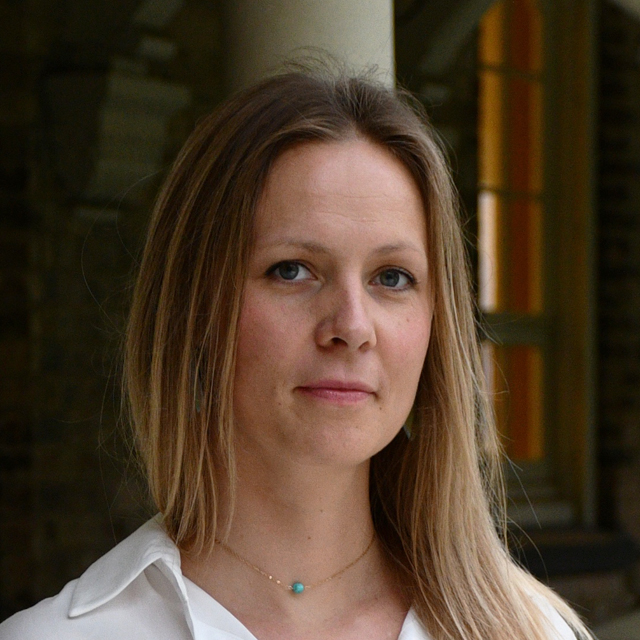Nicole Spiegelaar
Assistant Professor, School of the Environment

Nicole Spiegelaar is an assistant professor, teaching stream at the School of the Environment, teaching undergraduate courses in environmental psychology (Environment & Mental Wellness and Ecology of the Mind), and a graduate course on research in environment and sustainability. She holds a PhD from the University of Toronto Scarborough.
Spiegelaar is the academic director of Trinity College’s Integrated Sustainability Initiative, where she teaches Environmental Science and Pathways to Sustainability in the Trinity One program, and leads the integration of sustainability into Trinity's academic programs with a focus on experiential learning. She sits on the University of Toronto’s President's Advisory Committee on the Environment, Climate Change and Sustainability and co-founded the Sustainability Pedagogy Community of Practice for University of Toronto faculty and graduate students.
Spiegelaar is passionate about using complex adaptive systems theory and transdisciplinary knowledge integration to address sustainability challenges. Her past research explored the natural environment as a living systems model for mental wellness shaped by Indigenous Knowledge of the James Bay Cree, Environmental Psychology and Ecosystems Science. The research strongly shaped her approach to institutional sustainability initiatives (e.g., as process-oriented, integrated, adaptive, and place-based) and the design of environment curriculum. During pandemic isolation, she developed a pedagogical intervention based on this approach that not only provided science students with critical skills to address socioecological sustainability issues but also instilled them with self-reported psycho-social resiliency, greater sense of agency in environmental issues and a stronger sense of nature and social connectedness.
Through experiential learning supervision, Spiegelaar works with community partners on various topics of planetary health, including the Women’s Healthy Environments Network, EcoSpark, Canadian Association of Physicians for the Environment and The New Farm. She also supervises student research on topics ranging from Philippine plastic sachet waste to cognitive restoration in natural environments, as well as campus-based projects.
At Trinity College, Spiegelaar developed place-based experiential learning opportunities in growing spaces, including urban agriculture and ecological monitoring. This led to Trinity’s Food Systems Lab, which hosts a variety of experiential culinary and urban agriculture research and curricula across the University of Toronto. She also worked with students and NAK Landscaping in re-designing an ecologically native landscape for Trinity’s forthcoming Lawson Centre for Sustainability, creating a site for immersive learning and further developing pollinator corridors on campus. This work integrates campus foodscapes, landscapes and ecosystems as living labs for restoring health socioecological relations and monitoring local ecological changes.
Spiegelaar is currently working with Trinity College on an academic strategic plan for sustainability and continues to work with students on archival research of the College’s history of relations with Indigenous lands, communities and native ecosystems, and research on the significance of native ecological communities. Her aim is to develop a place-based understanding that can inform future experiential academic programs on this land.

